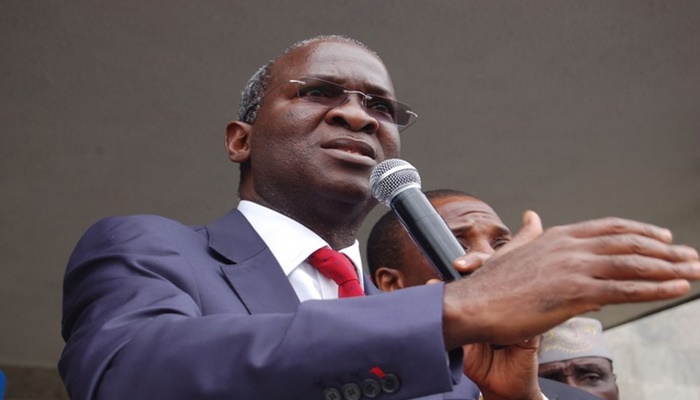
The Senate has agreed with the Federal Government on the need to float a N10 trillion Infrastructure Bond towards creating a financial pool to meet funding gaps and road infrastructure deficit in the country.
The Minister of Works and Housing, Babatunde Raji Fashola made the proposal when he appeared before the National Assembly Joint Committee on Works for the defence of the ministry’s 2020 budget estimates on Thursday.
The Chairman of the Joint Committee, Senator Adamu Aliero said from the observation of members of the Committee, the Federal Government would require funds in the size of the 2020 budget which is N10.33trillion to finance the 540 roads planned to be completed under the 2020 fiscal year.
Fashola said the bond when realised would help close gaps in fund releases and annual deficits in the capital budget.
According to Minister, the proposed bond should be given a legal backing with a very competitive coupon rate, saying investors, ministries and government agencies would readily commit their money, if backed by law.
“What I will recommend, which I have addressed during my confirmation here was that we should launch the National Infrastructure Bond and this would be the responsibility of the Ministry of Finance and Debt Management Office.
“I think that is one way to entice and inspire agencies like the pension fund to invest money in a secured Government backed instrument. They are investing in Treasury Bills because it is Government instrument and it is secured.”
Aliero, on his part said the bond has become necessary to be able to bridge infrastructure gaps even if it means the roads would be tolled to recoup the funds.
“We require N10 trillion to build these roads. Our country is where roads are built by the government.
‘’People are interested in investing in the road project and requires to be encouraged, by allowing them to construct, maintain while they build toll gates to recover their funds.
“In countries like Malaysia and Morocco, private investors are directly involved in the construction of roads, with toll gates also built on the roads to recoup their investments.
“Thereafter, such roads are returned to the Federal Government,” Aliero said.
Meanwhile, the Ministry of Works and Housing has proposed the sum of N287.2billion for its 2019 budget as against N428.4 billion appropriated for the ministry of power, works and housing in the 2019 fiscal year.
Fashola who disclosed this during the hearing, said out of the N428.4billion for 2019, the works sector received N251.7 billion, with N223.3 billion for capital projects.
He said that as at October 15, only N53.3 billion had been released to the works sector which amount to 23.88 per cent capital budget performance.
He added that N45.3 billion of the N53.3 billion was utilized for the part payment for outstanding certificates on roads, bridges and maintenance works.
As at October 15, according to the Minister, the Federal Government is indebted to contractors to the tune of N321.1billion currently working on ongoing highway projects.
‘He said: “The sum of N273, 919,607.18 was released to the ministry for overhead costs for the period January-June, 2019, which represents 57% of the budgetary provisions of N480,186,739.13.”
540 highway projects at a total contract sum of N4.8 trillion spread over six geo-political zones in the country.






